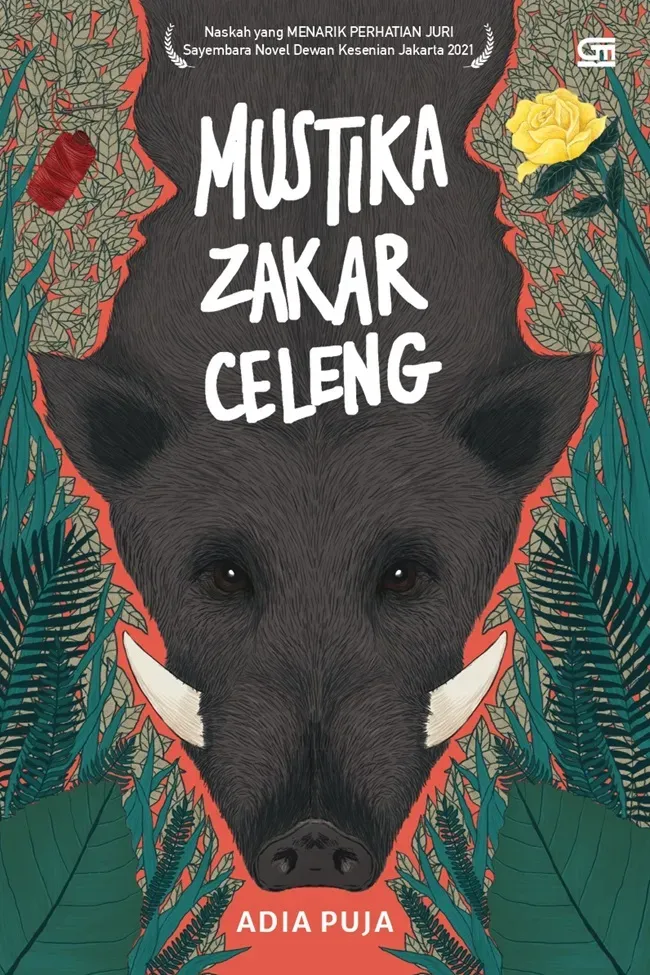Mustika Zakar Celeng

Author: Adia Puja
Category: Fiction, literature
Language: Indonesian
Publication Year: 2023
Pages: 232
Description:
**"Mustika Zakar Celeng" by Adia Puja** is the kind of book that makes you stop and wonder what on earth you’ve gotten yourself into from the very first page. With a title as provocative as *Mustika Zakar Celeng* (which roughly translates to “The Sacred Boar Penis”), you know you’re in for something off the beaten path. And boy, does it deliver.
At its core, the story revolves around a mystical object: the titular *mustika* or magical boar penis, which is believed to have supernatural powers. If you think this sounds absurd, you’d be right, but that’s part of the charm. The author, Adia Puja, takes this wild concept and turns it into a darkly humorous exploration of rural life, superstition, and the often absurd lengths people will go to in the name of tradition and power.
The novel is set in a remote village in Indonesia, where the power of myths and magic is woven into everyday life. The central character, Saka, is an unremarkable man who stumbles upon this legendary *mustika*, which grants him a series of bizarre and often hilarious powers. Think of Saka as your average Joe, suddenly thrust into a situation way beyond his comprehension, but instead of turning into a superhero, he becomes entangled in the village’s tangled web of greed, lust, and desperation.
Saka’s discovery of the *mustika* sets off a chain reaction of events, with various villagers (and shady characters) scheming to get their hands on this powerful object. It doesn’t take long before things start spiraling out of control, and the story turns into a chaotic yet entertaining whirlwind of absurdity, with a cast of characters ranging from eccentric shamans to corrupt officials, all vying for control of the mystical relic.
What makes *Mustika Zakar Celeng* so enjoyable is its irreverent tone. Adia Puja isn’t afraid to poke fun at the ridiculousness of his characters, and there’s a biting satire underlying the humor. The village is a microcosm of Indonesian society, where superstition, tradition, and politics collide in often farcical ways. Through the antics surrounding the *mustika*, Puja deftly critiques the human obsession with power, the exploitation of the gullible, and the blind faith in superstition.
The novel isn’t all laughs, though. There’s a biting critique of rural life, where the combination of poverty and belief in the supernatural can lead to some pretty grim outcomes. The villagers’ desperation, and the corrupt systems they live under, give the novel a dark undercurrent. But it’s handled with a deft touch—Puja doesn’t dwell on the misery; he lets the absurdity of the situation speak for itself.
And the absurdity is truly where the novel shines. The magic of the *mustika* isn’t limited to just giving Saka some strange abilities—it also affects the entire village in unpredictable ways, leading to surreal moments that feel like they’re straight out of a fever dream. But somehow, it all works. The story manages to balance its wackiness with a sense of grounded reality, making it all the more compelling.
Adia Puja’s writing style is sharp, filled with witty dialogue and vivid descriptions that bring the village and its eccentric inhabitants to life. He has a knack for capturing the small details of village life, from the gossiping neighbors to the constant tension between tradition and modernity. At times, the novel feels like a parable, warning against the dangers of blind belief and the lengths people will go to in order to secure power.
Despite its outlandish premise, *Mustika Zakar Celeng* offers more than just laughs. It’s a sharp, satirical take on the human condition, wrapped up in a story that’s equal parts hilarious and thought-provoking. The novel might leave you shaking your head at the absurdity of it all, but that’s exactly what makes it such a fun and memorable read.
In the end, *Mustika Zakar Celeng* is a strange, wild ride of a novel, but one that’s filled with wit, humor, and just the right amount of madness. Whether you’re into magic, mythology, or just looking for something completely out of left field, this book is worth the journey. Just be prepared—you might never look at a boar (or its anatomy) the same way again.
Personal Notes:
Back to Home